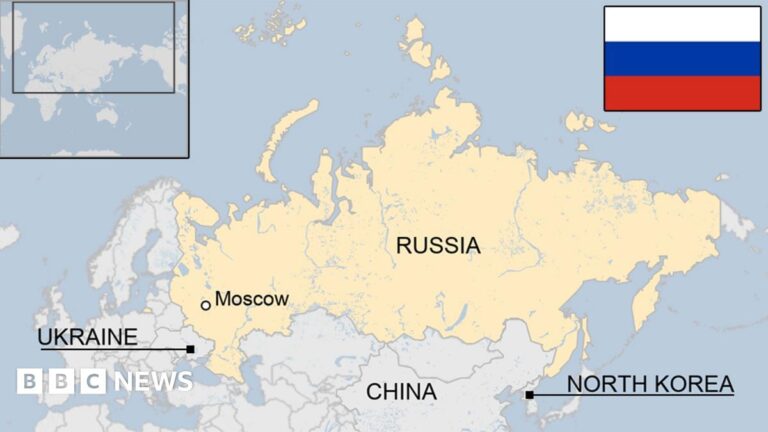Russia has issued a stern warning to the United States, South Korea, and Japan amid talks of forming a new security alliance aimed at countering North Korea’s growing military threats. In a move highlighting escalating regional tensions, Russian officials cautioned that such an alliance could destabilize the delicate balance of power on the Korean Peninsula and exacerbate security challenges in Northeast Asia. This development underscores the complex geopolitical dynamics as key players respond to North Korea’s continued weapons program and shifting strategic alliances.
Russia Condemns Security Alliance Plans Citing Increased Regional Tensions
Russia has sharply criticized the proposed trilateral security pact between the United States, South Korea, and Japan, asserting that it threatens to destabilize the already fragile security dynamics in East Asia. Moscow cautions that the alliance, framed as a deterrent against North Korean aggression, risks escalating military tensions and provoking an arms race in the region. Russian officials argue that such a move undermines diplomatic efforts aimed at peaceful resolution and may isolate Pyongyang, pushing it into a more confrontational stance.
The Kremlin’s concerns underscore several key points:
- Potential escalation: The alliance could exacerbate hostilities and trigger reciprocal military build-ups among neighboring states.
- Diplomatic sidelining: Marginalizing Russia and China from security dialogues may hinder comprehensive regional cooperation.
- Impact on global stability: Heightened tensions in Northeast Asia could ripple to broader geopolitical unrest.
| Country | Position on Alliance | Strategic Concern |
|---|---|---|
| Russia | Strong Opposition | Regional Destabilization |
| United States | Support | Deterrence Against North Korea |
| South Korea | Support | Strengthened Defense Posture |
| Japan | Support | Enhanced Security Cooperation |
Moscow Urges Diplomatic Engagement Over Military Coalitions in East Asia
Moscow has expressed strong reservations about recent discussions among the United States, South Korea, and Japan pertaining to the establishment of a trilateral security alliance aimed at countering North Korea’s military activities. The Russian Foreign Ministry emphasized that such coalitions risk escalating tensions in an already volatile region and undermine ongoing diplomatic efforts. Moscow advocates for restraint and adherence to established frameworks that prioritize negotiation over confrontation.
In a recent statement, officials highlighted the necessity of focusing on diplomatic engagement and multilateral dialogue rather than forming exclusive military blocs. They underscored key concerns:
- The potential destabilization of Northeast Asia’s security balance
- Risks of provoking North Korea into further militarization
- Undermining existing international platforms such as the Six-Party Talks
| Stakeholder | Position | Primary Concern |
|---|---|---|
| Russia | Opposed | Regional escalation |
| United States | Supportive | Deterrence of North Korea |
| South Korea | Divided | Security vs. diplomacy balance |
| Japan | Supportive | National defense enhancement |
Experts Recommend Dialogue and Multilateral Talks to Address North Korea Concerns
In response to escalating tensions on the Korean Peninsula, international experts emphasize the critical need for open channels of communication and cooperative engagement. They advocate for sustained dialogue among all key stakeholders to reduce misunderstandings and avoid miscalculations that could lead to conflict. Multilateral talks involving North Korea, the United States, South Korea, Japan, China, and Russia are seen as the most pragmatic path forward. These discussions aim to balance security concerns with diplomatic outreach, fostering a stable environment where long-term agreements can be pursued.
Key recommendations from analysts include:
- Establishing regular multilateral forums to address security and humanitarian issues concurrently.
- Enhancing transparency measures to build trust, such as verification protocols and communication hotlines.
- Incorporating economic incentives and phased sanctions relief as part of confidence-building initiatives.
- Prioritizing diplomacy over military posturing to prevent escalation.
| Stakeholder | Main Interest | Role in Dialogue |
|---|---|---|
| North Korea | Security guarantees, sanctions relief | Primary subject and participant |
| United States | Denuclearization, regional stability | Facilitator and security partner |
| South Korea | Peace on the Peninsula, reunification hope | Host and key mediator |
| Japan | Security concerns, abductee issues | Active participant and ally |
| China & Russia | Regional influence, peacekeeping | Co-facilitators and backchannels |
In Summary
As tensions on the Korean Peninsula continue to simmer, Russia’s stern warning against the formation of a new security alliance involving the U.S., South Korea, and Japan underscores the fragile nature of regional diplomacy. While Washington and its allies emphasize deterrence against North Korean provocations, Moscow’s caution reflects broader geopolitical concerns that could complicate efforts toward stability. The coming months will be critical in determining whether dialogue or escalation will shape the future of security in East Asia.




